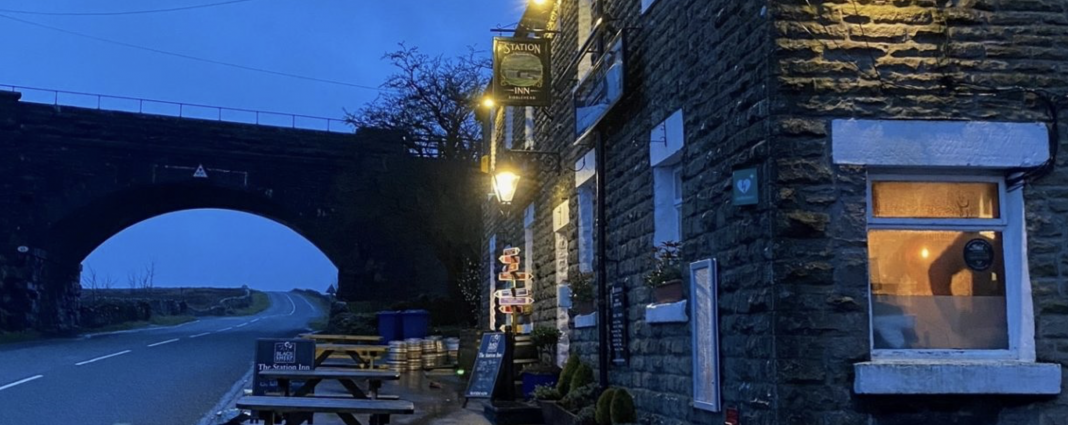Four prominently-located Yorkshire Dales businesses have received grants from the National Park Authority to cover the cost of introducing dark skies-friendly lighting.
The Station Inn in Upper Ribblesdale, near to the iconic Ribblehead viaduct, has installed 19 directional and well-placed exterior LED lights, significantly reducing glare and helping to make the surroundings perfect for astrotourism.
The other three businesses to install dark skies-friendly lighting are The Wensleydale Creamery in Hawes, including the Visitor Centre; the Stone House Hotel in Upper Wensleydale and the Yorebridge Sport and Leisure on the edge of the village of Askrigg.
The Yorkshire Dales National Park – and its near neighbour the North York Moors National Park – achieved International Dark Sky Reserve status in December 2020. Since then both have embarked on a comprehensive programme of monitoring artificial light levels, providing lighting guidance on their websites as well as working with councils, businesses and residents to advise and provide grant-funding for those looking to change their exterior lights.
Station Inn publican Claire Hobbs said: “By working with the Yorkshire Dales National Park Authority and the Dark Skies initiative we have not only had support to make the inn ‘Dark Sky friendly’, with modifications to our outdoor lighting, but we also had support in terms of promotions and access to astronomers.
“We are now running regular star gazing evenings and incredibly each is a sell-out irrespective of whether they’re midweek or weekend events. This is generating much needed trade in the always tricky off-season.”
Hannah Kay, Dark Skies Project Manager for the Yorkshire Dales National Park added: “There are so many benefits to swapping to dark skies friendly lighting, particularly as newer appropriately angled low power LED warm light technology can reduce energy consumption. Beyond that, research has shown just how much wildlife needs true darkness, whether it’s night pollinating moths or birds roosting. There’s also the benefit to our own wellbeing and of course, the wonderment that comes from seeing a dark sky which is filled with thousands of stars.”



